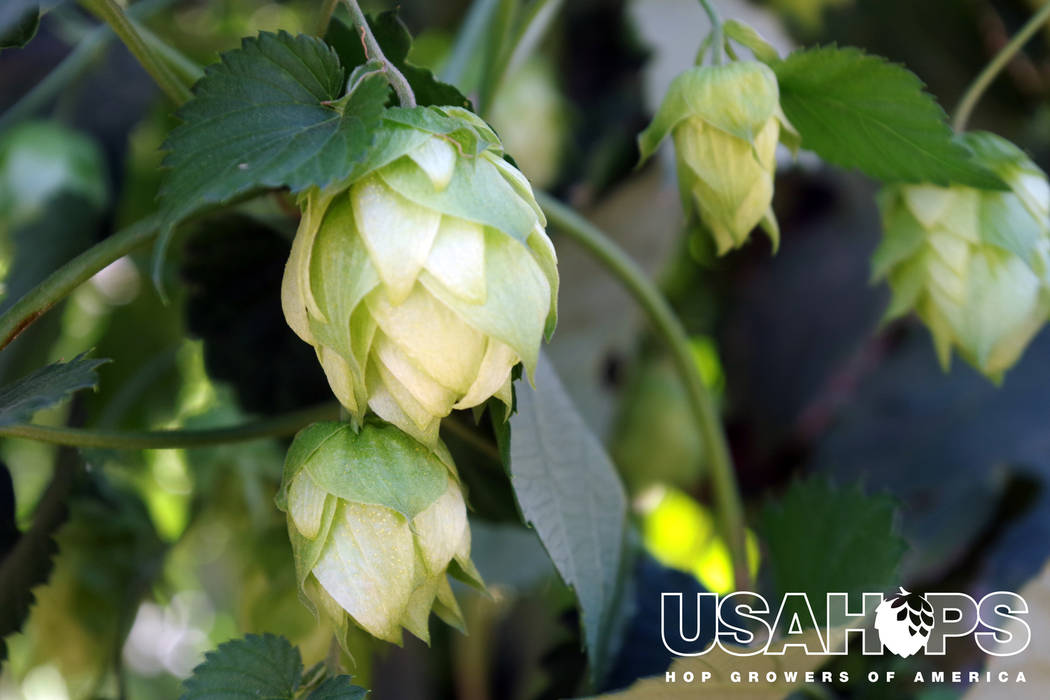
Hop Traceability
Hop Traceability is a crucial tool for brewers, not only for food safety, but to help deliver quality and consistency as well.
“Grower numbers are an important tool used in the hop selection process, as important as variety and lot numbers...This standard has been a part of the hop industry in the Northwest for decades, and has helped guide brewers, not only for reasons of raw material traceability, but also for reasons of consistency and familiarity with individual farms. Grower numbers are one of a number of data points that we log with every brewer’s cut that we assess and have helped us to recognize the farms and the growing regions that produce the best hops for our beers. As commercial hop growing moves out of the Northwest and across the country, having a standardized system in place that connects the bale to the growers in these new regions is obviously important.”
- Firestone Walker Brewmaster Matt Brynildson
![]()
Pictured: sample of grower stencil for a 2016 lot from a Washington grower; number 305; lot 009. (WA305 currently an in-active number for sample purposes only).
Obtaining a grower number is a free service to the industry and does not require membership in HGA. Grower Numbers are available to those who:
- Are growing hops with the intent of commercial use
- At a minimum, have a quarter of an acre of hops
If you would like to apply for a grower number, email a completed Grower Number Application Form and email it to [email protected].
Variety Codes
A separate Variety stencil may also be applied to hop bales or packages. US hop variety abbreviations have been harmonized with other countries through discussions of the International Hop Growers Convention (IHGC). These abbreviations follow a three character format, available HERE. To request the addition of a new variety to this list, please contact [email protected]. The complete international list of Variety Codes may be found HERE.
Quality Inspection
The US Hop Industry has numerous steps in place to ensure only the highest quality hops make their way to breweries. One of these steps includes a standard protocol for the inspection of hops for seed, leaf and stem content developed by the USDA Federal Grain Inspection Service. All hops produced for commercial sale in Oregon, Washington, and Idaho are required to obtain a Federal-State Seed, Leaf and Stem inspection and certificate prior to sale.
Encompassed in the Hop Inspection Manual is guidance for state departments of agriculture to conduct seed, leaf and stem inspections as a joint Federal-State program. The current manual is being updated to reflect changes in hop harvesting and handling technology. USDA issued a Policy Bulletin in 2016 to notify states of the new revisions. A second Policy Bulletin was issued in 2021 to update language pertaining to Submitted Samples. An updated Hop Inspection Manual will be released in 2022.
In addition to mandatory inspections in Oregon, Washington and Idaho, several additional states are implementing this program on a voluntary basis, in order to provide customers with consistent quality information.
Hops may also be analyzed for Brewing Value to quantify alpha and beta acid compounds, as well as a range of other essential oils and flavor compounds. Laboratories offering these services are included in the Supplier Directory.
As of August 1, 2021 the Washington Department of Agriculture has implemented new inspection fees for the certification, chemical analysis, and export certification of hops and hop products. Find the full report of fees by accessing Chapter 16-218 of the Washington Administrative Code.
Liberty Building, 32 N 3rd St - Suite 408 \ Yakima, WA 98901 Mail to: P.O. Box 2885 \ Yakima, WA 98907 1.509.453.4749